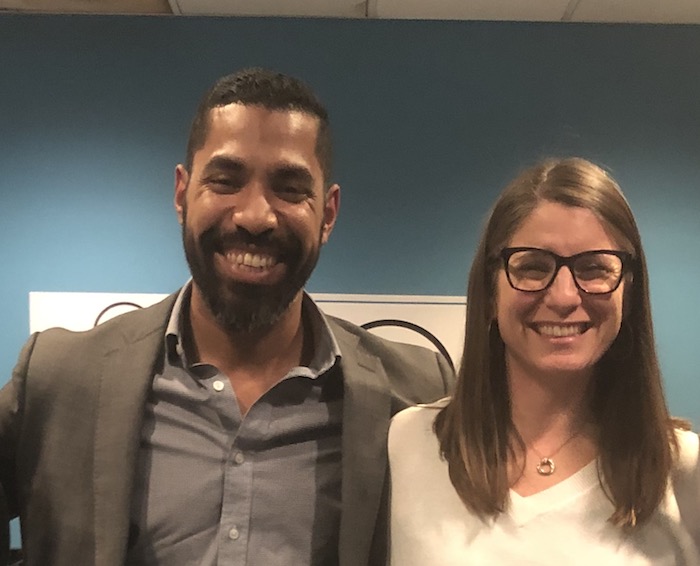Share This Article

Fifty weeks after the Amazon HQ2 deal collapsed, New York City’s economy continues to add jobs, and tech companies continue to invest here.
“The impact has not been so bad,” Julie Samuels, the executive director of Tech NYC, a trade group for the tech sector, told WBAI’s Max & Murphy Show on Wednesday. “The industry continues to grow, companies continue to come here. I feel just as bullish as I did a year ago before Amazon pulled out.”
That’s not to say the loss of the deal didn’t come at a cost. “Yes, Amazon is now bringing thousands of jobs,” Samuels said. But it’s “significantly fewer than would have been part of HQ2.” And “the fundamental difference is that those jobs are going to be in Hudson yards and not in Long Island City”—meaning the task of diversifying the geography of the city’s tech sector remains undone.
So too is the task of including all of the city’s communities in the local tech boom.
“The jobs are here and they are going to continue to grow and cities like New York are always going to be at a competitive advantage of having companies come here,” said Joey Ortiz, Jr., the executive director of the New York City Employment and Training Coalition (NYCETC). “We just need to provide the best opportunity for individuals to access and receive the necessary training in order to get those opportunities.”
The expanding number of tech jobs – at tech companies moving in and starting up, and at non-tech companies that are investing in tech-related job lines – is part of a move toward a more diversified economy since the 2008 financial crash, which exposed the city’s reliance on the financial sector. Tech jobs themselves are diverse, Samuels notes, although there continues to be the risk of a “donut-hole” economy—of jobs at low and very high salaries, but little in the middle. Avoiding that is a matter of attracting employers that offer mid-level jobs and making sure the talent is in place to take them, she added.
“The economy is doing incredibly well here in New York City compared to other areas in the country. The city has done an incredible job for the last five to ten years in cultivating the tech industry and ensuring opportunities for those companies to grow here. Providing different services and projects to ensure that New York was a foundational base that they wanted to be in and grow here as opposed to moving to other areas in the country that, at the time, were more vibrant tech ecosystems. That in itself is a good thing,” Ortiz said. “When you get into some of the complexities of talent and whether or not that’s reaching certain populations, that’s a harder conversation to have.”
It’s not just about job training programs, he noted: “There is a large percentage of the population that is well removed from even being able to participate in those programs. They cannot access those trainings because they have certain skill deficits. It might be language skills, math, or digital skills.” Those would-be workers need bridge programs just to be able to access the training. And that requires steady investment—for working-age people who are out of school, and in K-12 classrooms as people prepare to enter the workforce.
And it’s not just about equipping people for jobs, but making sure jobs provide what the city needs its people to have, like the benefits and security not usually associated with the “gig economy.” That means a conversation about work, lifestyle and benefits that is about a lot more than tech, Samuels insisted. “I hope we don’t miss the opportunity to interrogate some underlying concerns because just regulating the tech companies is putting a bandaid over something that’s underlying in our society that is not working right. I hope we have the wherewithal as a society to use this moment to really dig in on those meatier and harder questions.”
Hear our conversation below, or the full show right after that:
With reporting by Anika Chowdury